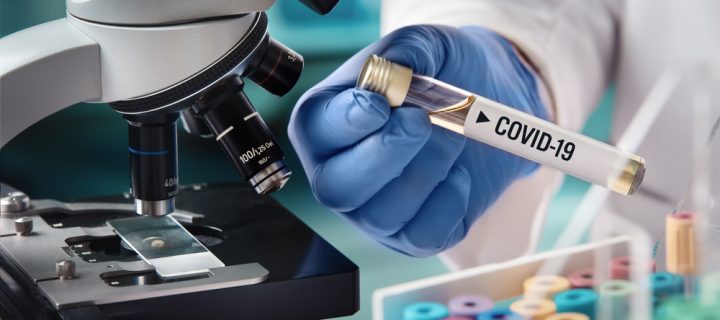People who take the vaccine develop COVID-19 antibodies, but how safe and effective it is isn’t known.
The World Health Organization (WHO) says there are currently 23 COVID-19 vaccines in development around the world.
According to recent reports, the vaccine being developed by Oxford University in England in collaboration with AstraZeneca, among others, is looking promising.
Researchers caution that there are still many uncertainties, however. This vaccine seems to be safe, but Phase 3 trials are still needed to check if it is really OK for the general public to take. In addition, no one knows for certain yet for how long this particular vaccine will work. Whether or not it will be effective enough in one group that needs it most- older adults- is also still not known. Researchers have said they still have to complete trials in places where the virus that causes COVID-19 is circulating at a high rate, and people are falling seriously sick. This needs to be done to see if the vaccine really does prevent people from getting infected with the coronavirus.
Related: The Benefits and Drawbacks to Spraying Sidewalks With Disinfectants
All this being said, the Oxford vaccine has shown signs that it works. It prompted an antibody response in trial participants within 28 days. It also showed a T-cell response in 14 days, and neutralizing antibodies were detected in most participants after just one shot, and in all participants after two shots of the vaccine.
What did phase one/two involve? A study published in The Lancet states the vaccine was tried in 1,077 aged 18 to 55 in five hospitals located throughout the UK. The vaccine was tested in April and May of this year, and none of the people involved had ever contracted the novel coronavirus.
There were some side effects, but nothing major. Some people reported feeling pain at the injection site, and others had chills, fevers, muscle aches, and malaise, but nothing that did not go away with a bit of time.
One thing that you may be wondering is how researchers find people who are willing to participate in COVID-19 vaccine trials. The large challenge right now is finding thousands of people quickly who are willing to virtually risk their lives in the name of forwarding science.
Related: How Safe is Money?
One website called coronaviruspreventionnetwork.org is doing a lot of the sourcing in the US. The site went live earlier in July. On it, you can register to take part in clinical trials for vaccines and monoclonal antibody therapies. These are very large phase 3 trials that are expected to take place this summer and fall in the US.
And yes, this all pushes the bounds of what is ethical in medicine. Since there is no official treatment to save people’s lives if they get a severe case of COVID-19, many researchers and scientists say it is likely that some people involved in the trial will get very sick with the coronavirus. It could be that some die. The tricky thing is that it is very important to test the efficacy of the vaccine in groups of people living with underlying conditions such as diabetes or heart disease, to see if any given vaccine truly works. But this is obviously dangerous and risky. As was written in the Washington Post, “The risk of death looms large”.
The US Department of Health and Human Services is behind the website recruiting volunteers. To be considered for trials, you simply fill out an online questionnaire, and your information is then sent to one of the 100 study sites nearest you, for consideration.
No doubt, by participating in a vaccine trial, you are contributing to something very special that will help humankind, and go down in history.
photo credits: angellodeco/Shutterstock.com












